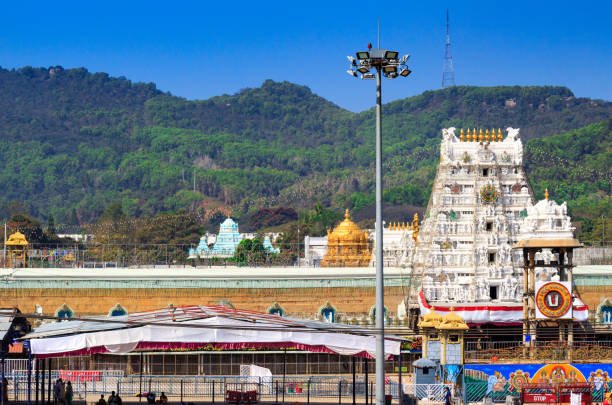In a scandal that has shaken the faith of millions, a Central Bureau of Investigation (CBI) probe has uncovered a massive ₹250-crore fake ghee racket that supplied adulterated ghee to the Tirumala Tirupati Devasthanams (TTD) — one of the world’s richest and most revered Hindu temple trusts.
According to the CBI’s Special Investigation Team (SIT), a Uttarakhand-based company, Bhole Baba Organic Dairy, illegally supplied nearly 68 lakh kilograms of fake ghee to the temple between 2019 and 2024. Shockingly, the company had no record of purchasing milk or butter, yet managed to deliver vast quantities of so-called “pure desi ghee.”
Lab analysis and witness testimony revealed that the product was a chemical concoction, made using industrial agents such as monoglycerides and acetic acid esters — substances used in lubricants and processed foods to mimic the texture and aroma of real ghee.
Blacklisted Firm Continued Supply Under Fake Names
The investigation found that TTD blacklisted Bhole Baba Dairy in 2022 after initial complaints surfaced. However, the company continued its supply chain through proxy dairies, including Vaishnavi Dairy (Tirupati), Maal Ganga Dairy (Uttar Pradesh), and AR Dairy Foods (Tamil Nadu).
The CBI report cites that certain batches even contained traces of animal fat, raising serious ethical and religious concerns. In July 2024, TTD reportedly rejected four tankers of ghee supplied by AR Dairy after finding irregularities, but the same consignments were rerouted to Vaishnavi Dairy — a move now under FSSAI scrutiny.
Web of Forged Records and Chemical Substitutes
The dairy’s promoters, Pamil Jain and Vipin Jain, are accused of fabricating purchase invoices and production records to legitimize their operations. One supplier, Ajay Kumar Sugandh, has confessed to supplying industrial chemicals used to enhance the product’s color, viscosity, and shelf life.
Investigators have traced a chain of forged GST filings, fake transport logs, and fraudulent testing certificates, pointing to a well-coordinated supply network spanning multiple states.
Faith Betrayed, Accountability Questioned
The scandal cuts to the core of faith and institutional trust. The “sacred ghee” used to prepare Tirupati’s iconic laddoo prasadam — consumed by millions of devotees annually — has now been tainted by commercial greed. Devotees and watchdog groups are asking how such a large-scale fraud went unnoticed for years under the temple’s procurement system.
Sources within the CBI confirm that the investigation has now expanded to examine the role of TTD’s procurement and quality-control departments, with officials suspected of negligence or collusion.
TTD and Government Response
In an official statement, TTD said it is “fully cooperating with investigative agencies” and has pledged to implement stricter quality audits and vendor verification measures. The Andhra Pradesh government has termed the scam “a crime against faith and public trust” and has directed a comprehensive audit of all temple procurement contracts.
Ethical and Institutional Reckoning
The case is more than a story of financial fraud — it is a test of transparency and integrity in religious institutions that handle enormous public donations. For one of India’s holiest temples, the scandal underscores the urgent need for ethical accountability, traceable supply chains, and independent oversight in procurement practices.
As the CBI widens its probe, several more arrests are expected in the coming weeks. The “ghee scam” has emerged as a stark reminder that when faith meets corruption, even the most sacred institutions can fall prey to the perils of greed and complacency.



